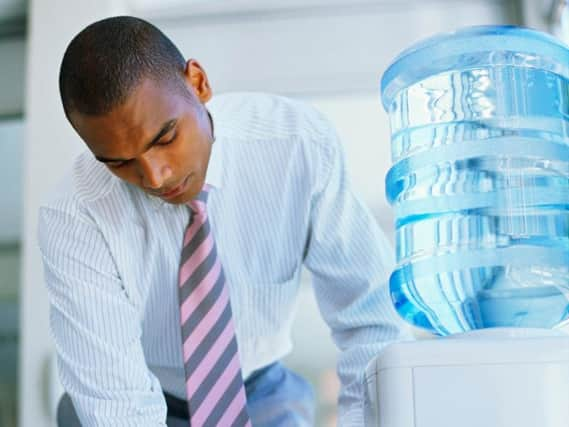Water coolers to be banned from Scotland's hospitals due to infection risk


Health staff in Glasgow were told on 14 August to drink tap water instead of bottled water from coolers.
A spokesman for NHS Greater Glasgow and Clyde (NHSGGC) confirmed it was the first board to implement a new national infection control directive due to be released by Health Facilities Scotland.
Advertisement
Hide AdAdvertisement
Hide AdThe guidance states that bottled water coolers should not be used in NHS Scotland healthcare premises.
Miles Briggs, Conservative MSP, shadow cabinet secretary for health, said he would be raising the matter in the Scottish Parliament asking ministers why the situation has arisen and what was being done to safeguard everyone using or working in Scotland’s hospital.
SCOTSMAN ONLINE: SUBSCRIBE TO THE SCOTSMANThe action has been taken due to the potential for bacteria to grow in the nozzle and the water bottle if not routinely used, posing an infection risk to vulnerable patients.
Other health boards across Scotland are expected to take similar action in the next few months.
An investigation at the Queen Elizabeth University Hospital in Glasgow was launched following a number of infections including bugs linked to the water supply.
The probe got underway after an infection outbreak in two cancer wards at the nearby Royal Hospital for Children last year.
Improvement measures include installing a new water treatment system and providing bottled water.
However, there have been reports of more infections with the source undisclosed.
Advertisement
Hide AdAdvertisement
Hide AdNHS National Services Scotland, which advises the Scottish Government on health policy, said it will be issuing guidance later this year.
A spokesman for NHSGGC said: “This guidance will be issued to all boards in Scotland and we are already in the process of removing all bottled water coolers.”
The spokesman said water was available for staff and patients.
Mr Briggs said: “It is greatly alarming that health boards are having problems with something as basic as drinking water and we need to know why. It is vital that safe, clean drinking water is available for both patients and staff.
“Such a situation may encourage relatives to take in bottled water, with the best of intentions, but this could add to the infection risk.”
Matt McLaughlin, Unison Scotland head of health, said many members had contacted him wanting assurance that the tap water was safe to drink.
“Not every tap is directly linked to the mains water supply, so we are asking for drinking water taps to be clearly identified,” he said.
A spokeswoman for NHS National Services Scotland, said: “The guidance around drinking water systems and dispensing equipment is currently under review by Health Facilities Scotland and is due to be published later this year.
“There is currently no ban on drinking water systems and drinking water dispensing equipment across the NHS in Scotland.”